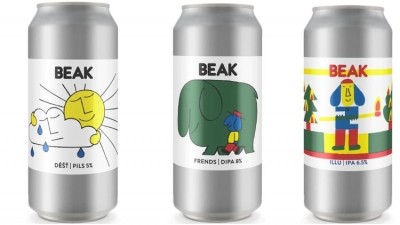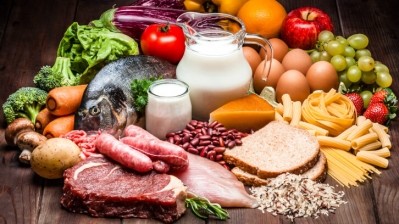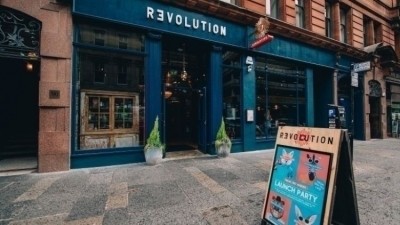DRINKS MASTERCLASS
Top tips for expanding your reputation for spirits

Spirits have struggled to recover post-pandemic as consumers increasingly monitor their discretionary spending and alcohol intake.
This has been demonstrated in the CGA by NIQ Daily Drinks Tracker, where sales have consistently and considerably lagged behind the other measured categories each week for some time.
However, despite decline within the category, operators can find plentiful opportunities with spirits, including a spike in premiumisation trends.
Diageo head of category development for on-trade Jennifer Runciman told The MA consumers are “drinking less but better”, meaning they are willingly to “spend more money on high-quality” products.
She said: “People are prioritising quality over quantity when visiting venues to treat themselves or celebrate and spirits lend themselves to both these moments as they form the base of high-quality mixed drinks and elevated serves.”
This is particularly true for the cocktail market, Runciman explained, which she said was currently worth £688m in value with 9.4m consumers in the UK opting to drink cocktails in the on trade.
“This presents a golden opportunity for operators – those that capitalise on the premiumisation and cocktail trends will deliver on customer expectations and provide exceptional experiences, encouraging people to return time and time again”, she continued.
Additionally, the alcohol-free spirits category has also seen growth, Runciman added, with big brands such as Gordon’s and Captain Morgan having launched new products in this segment in recent years.
Great opportunity
“Alcohol Free spirits are quickly becoming a year-round option, with most alcohol-free drinking occasions are coinciding with times that people also consume alcohol.
“This presents another great opportunity for operators to have a more inclusive and exciting range of drinks”, she said.
Runciman also advised treating alcohol-free spirits as their own category to increase viability in-venue was key to “maximise the opportunity” with 71% of consumers expecting to find these drinks in a specific section on menus.
“It is important to see these options not as soft drinks as only 3% of consumers will look in the soft drinks section of a menu to find an alcohol-free option, but as a category in their own right, so giving them their own space on the menu is a great way to encourage exploration”, she recommended.
In addition, the Diageo category head also urged pubs to showcase their range well online and opt for brands that will instil confidence in prospective consumers to drive footfall.
“We know many people check menus before visiting a venue, so leveraging well-known and trusted spirits brands will provide potential customers with reassurances that whichever spirit or mixed drink they order, they know it will taste great.
“We also know three in five consumers look online to see how cocktails look prior to ordering these at the bar, so having a strong online presence and great looking serves is a simple way to maximise this opportunity”, she said.
However, growing your reputation for spirits goes beyond the products on the back bar as consumers expectations and focus on quality within the category grows.
“Getting the basics right is the first step in ensuring both a drinks range and serve meets customer expectations.
“You’ve got to cut your cloth accordingly and ask, ‘what are you going to be famous for?’"
“If consumers are visiting an outlet for a special occasion or a treat, we can therefore expect them to opt for more elevated serves that they are less likely to create themselves at home.
“Therefore, choosing top-quality liquids and mixers and serving them in the correct glassware, as well as adding garnishes, will be key.
“Finding ways to elevate even the simplest of serves, such as a classic G&T, will also go a long way", Runciman continued.
However, she also warned operators were under pressure to “get serves right the first time” while battling staff shortages.
To combat this, Runciman advised operators to stock versatile spirits that lend themselves to simple and quick to make serves, such as flavoured spirits.
Growing your collection and focusing on your strengths in key areas was also something Tim Bird, owner of Cheshire Cat Pubs & Bars and recent winner of the best drinks offer at the Publican Awards, told the MA was imperative for pubs looking to expand their spirits offering.
Bird, who’s pub the Cholmondeley Arms has previously been named the Great British Pub Awards pub of the year, urged operators to start by focusing on something they are passionate about and specialising in that.
He said: “The spirits category is probably bigger than it's ever been. There's such a plethora of drinks out there that it can almost be over facing; you've got to start with your wholesaler and go to them specifically to ask for a list [of different spirits].
“The thing I find with pubs is that they don't specialise in something and get the team trained in that.
Build a collection
“You’ve got to cut your cloth accordingly and ask, ‘what are you going to be famous for?’
“When you've made the decision, go to the wholesaler, see what is available and start to build a collection.”
Though inspiration for your collection can come from anywhere, Bird continued, from the history of the pub to consumer desires.
He said: "It could be based on the passion for a certain spirit from the licensee or manger.
“Sometimes the history of a building can tell you what to do or the connections the pub may have had in the past with certain things.
“Talk to your guests and customers and find out what they want to try and what they their favourite drinks are and if they have a favourite spirit or get a feel from your wholesaler.
“Or take something individual and say, ‘I'm going to be famous for a Paloma and it's going to be the best you'll ever have’ and become renowned for that.”
In addition, becoming well-known for a specific drink or spirit offers plentiful upselling opportunities, Bird explained, but training staff to know the spirits on offer “inside out” is imperative.
“By bringing people in out of interest, they may start with a Paloma or a whiskey sour or something, but then move on to buying food from you and wine from you, and maybe a liqueur and telling their friends.
“Look for something that isn't too niche but that you can become an expert in. People want to see different things.”
“Then suddenly you're building a business out of just bringing them in on the back of one thing.”
However, the award-winning publican warned while a collection could not be built “overnight”, he reassured as your portfolio grows, so will customer interest.
“It takes a lot of money to build [a collection] and we haven't done so overnight; we've never opened with more than probably 30 bottles to start with.
“Over time you start to build a portfolio, the Mannering Arms (in Cheshire) has more than 100 rums now, but it started with 40.”
A great way to showcase your range, Bird added, was to implement offers such as a spirit of the month as well as food pairings or tasting and sampling events to "engage" your customers.
In addition, Bird implored pubs to look into stocking entrepreneurial brands to offer something different alongside the bigger brands to stand out from the crowd.
He continued: “A back bar should have different spirits that sort of puzzle the customer so it's not all the usual suspects; people are far more interested in the individuals and the smaller companies.
“Look for something that isn't too niche but that you can become an expert in. People want to see different things.”
Though the most important thing to consider was affordability, Bird advised.
“Whatever you are buying, you need to make sure you can afford to buy it and keep it in stock," he said.
When it comes to trends, Bird noted he was seeing growth and improvements in the whiskey and Tequila markets.
Measuring margins
He explained: “There's a lot of great whiskey production going on at the moment, particularly in Ireland, and I think that's a market that is definitely going to become premier. Tequila as well [is becoming more popular].
“We never stocked Tequila previously because we didn’t want to do slammers and only really perceived it as that, but growth within the market in long drink formats, for example in Paloma’s, has meant we could sell Tequila with a mixer.
“But gin isn't by any stretch of the imagination dead in the water. People just want less flavoured gin and are going back to traditional juniper gins.
“Pubs can play a great winter game with whiskey and then a great summer game with gin.”
However, pricing can be difficult to manage for the spirits category, especially at the premium end, and can have a “detrimental effect” if calculated wrong, Bird warned.
To combat this, he advised operators to first ask themselves what they would pay or ask for guidance from wholesalers.
He said: “It's easy to say we want a 70% margin on everything, but that doesn't work when you get to more expensive spirits because you end up with a spirit that won't sell because it's just a ridiculous price per shot.
“You need to measure between whether you want a percentage margin or a cash margin or both, they're the things to weigh out first.
“Get the prices from your wholesaler, which are net of VAT generally, divide them by the 28 shots that are in a bottle then divide it by the percentage you want, which will give you a selling price when added with VAT, that's where I start.”
- Check out the previous Drinks Masterclass on RTD trends you need to know here








